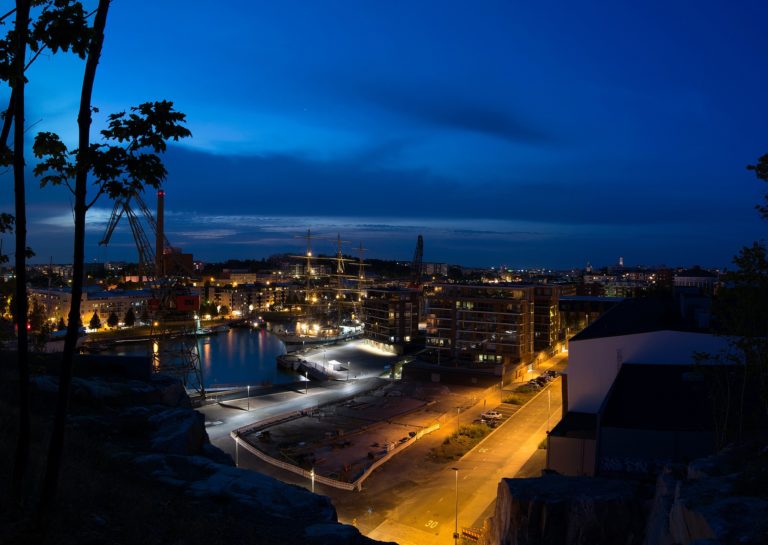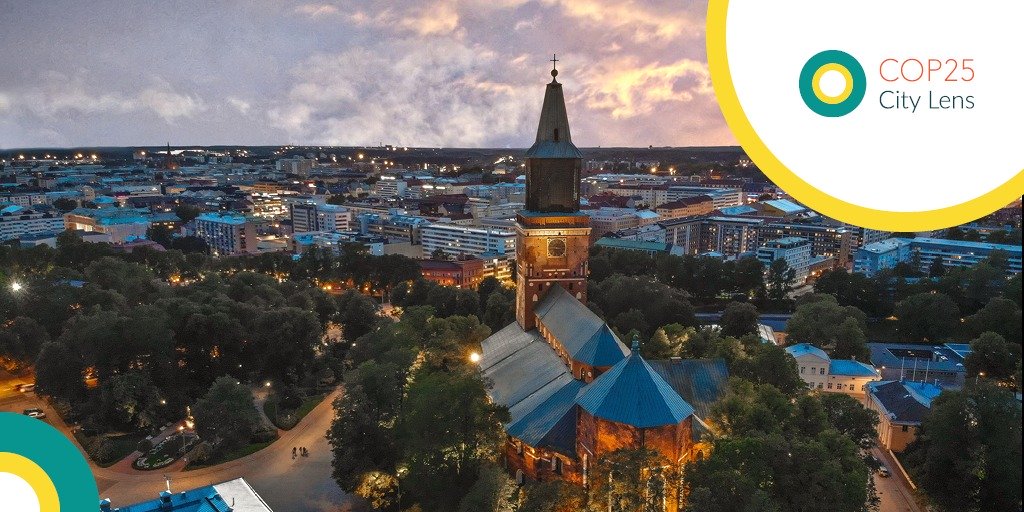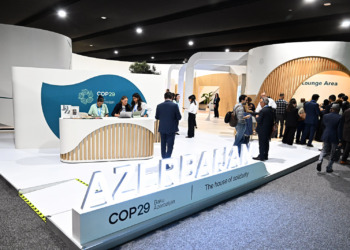A major focus in COP25 is on “how” to reduce emissions and achieve carbon-neutral circular economic systems at the local and regional level and beyond. This article explores the positive experiences of the City of Turku (Finland).
This article, first published on the ICLEI blog, is part of our “COP25” Editorial Series, done in partnership with ICLEI — Local Governments for Sustainability.
At the 2019 UN Climate Summit in Madrid, the City of Turku (Finland) will present their circular economy best practices during ICLEI’s Circular Development track at COP25. The City, ICLEI and the Finnish Innovation Fund Sitra are also releasing today the policy brief “Towards carbon-neutral circular economies at the regional level.”
The City of Turku aims to become carbon-neutral by 2029 and climate positive with negative net emissions thereafter. This ambitious goal is supported by deep decarbonization measures, carbon sinks and a strong commitment to circular economy practices at the regional level.
COP25 is a critical moment to answer the “how” of emissions reductions, at the local and regional scale, and beyond. Experiences from the City of Turku demonstrate how circular development can operationalize systemic climate action while yielding multiple co-benefits.

Circularity as a tool to address emissions systemically in Turku
From extraction to manufacturing, transport, distribution and disposal, materials and products produce substantial emissions all along their lifecycle. These emissions arise across different geographical boundaries and actors, so they can be difficult to monitor and manage and therefore often remain absent from climate commitments and actions.
The City of Turku has decided to act upon this gap and has committed to achieving zero emission and zero waste by 2040. To achieve these ambitious goals, the city is supporting the development of circular economy projects that prioritize regenerative resources, preserve what is already made and use waste as a resource.

Pathways for implementation
By reducing the need for resource extraction and manufacturing, circular development offers an implementation oriented framework to address emissions from a lifecycle perspective. The policy brief “Towards carbon-neutral circular economies at the regional level” describes three pathways to curb GHG emissions through concrete circularity measures implemented in the Turku region. Each pathway is accompanied by regional best practice examples with demonstrated impacts.
Related Articles: Female Mayor ‘Warriors’ of the Amazon Inspire COP25 Delegates With Stories of Resilience | Early Days of COP25 Highlight Plight of Most Vulnerable Nations
Regional collaboration as a cross-cutting enabler
The City of Turku and its surrounding region host a vibrant ecosystem of circular economy actors and front-runner initiatives that contribute to local climate action and sustainable resource management. With the support of Sitra, the City of Turku is working with ICLEI to develop a participatory regional roadmap towards circularity.
The policy brief provides an overview of tools that can be used by regional actors and cities to plan and implement circular economy projects.
Regional collaboration is essential to implement circular economy projects that effectively contribute to climate action. The policy brief provides an overview of tools that can be used by regional actors and cities to plan and implement circular economy projects.
The Mayor of Turku, Minna Arve, will present the benefits of regional collaboration for circularity at the High-level circular economy roundtable: Cities and buildings as agents of climate action on 10th December (10 – 11:30), which ICLEI is co-organizing with the Global Alliance for Buildings and Construction, hosted by UN Environment.









